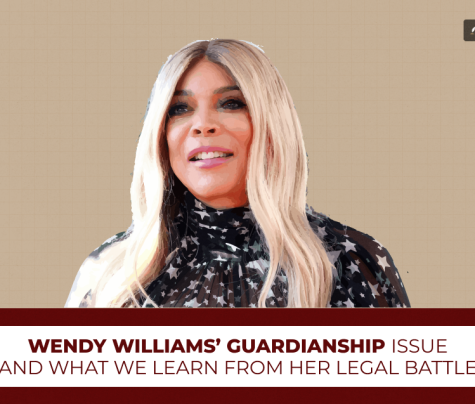You must have heard about people (read: insiders) coming out and leaking the dirty secrets of a company or organization. They are the whistleblowers who first bring anything shady to attention. But, that is a dangerous task. That’s where Whistleblowers Legal Rights enter!
A whistleblower exposes insider knowledge about illegal, illicit, or fraudulent activities within an organization.
For instance, if you raise the alarm after discovering that your boss has been embezzling company funds, you would be considered a whistleblower and could benefit from protection against retaliation.
Hi. In today’s blog, this is exactly what I will be talking about. In this article, you will find the answer to a key question about whistleblowing: Who can be a whistleblower? And what rights do they have?
So, if that is what you want to know, you have come to the right place! Therefore, keep on reading this blog till the end and thank me later…
Whistleblowers Legal Rights: What Protects the Whistleblowers?
“The specific rights and protections available to whistleblowers depend on the type of wrongdoing they are reporting and the relevant laws governing the industry or sector,” says South Carolina whistleblower attorney Bill Nettles of The Law Office of Bill Nettles.
A few examples include:
- Whistleblower Protection Act (WPA) of 1989: Empowers government employees to raise the issue of waste, fraud, or abuse within the affected federal agencies.
- Sarbanes-Oxley Act (SOX) of 2002: Assists workers of publicly traded companies to disclose the corporate fraud happening within the companies.
- Dodd-Frank Wall Street Reform and Consumer Protection Act (2010): Provides protection from punishment as well as monetary rewards to people who report securities law violations to the SEC.
- Occupational Safety and Health Act (OSHA): Protects the rights of those workers who come forward to raise the issue of unsafe working conditions in their workplaces.
If you think about it, you will notice that almost all legal regulations covering whistleblower protection are primarily directed at employees.
So, does it mean that only employees can be whistleblowers? Not without exception. Keep going, and you will find out…
Who Can Be a Whistleblower?
The assertion that after the enactment of the laws the primary motivation was to protect employees within one single organization is correct. The first force coverage has expanded to other people. But who?
Well, here is the list that you need to take a look at:
- Contractors, consultants, and vendors: A whistleblower is someone who informs the authorities about any violation of the securities laws, and he is also covered in the sense of the Dodd-Frank Act. He could even be a contractor, consultant, or vendor.
- Shareholders and investors: A non-employee but a stakeholder of the company who has information about things like insider trading, securities fraud, or other corporate misconduct can also report such matters due to the Sarbanes-Oxley Act and the Dodd-Frank Act.
- Former employees: Even in the absence of a present employment relationship, a former employee will still be called a whistleblower if he knows about or sees something wrong.
It is quite likely that individuals from the public can be whistleblowers without being in any way related to the company.
According to the False Claims Act, members of the public, as qui tam relators, who have witnessed or are in a position to justify matters involving government fraud can bring a suit on behalf of the government.
In short, anyone and everyone can be a whistleblower. The preservation of the rights of whistleblowers who file reports and inform the authorities of wrongdoing is not only limited to the individuals working with or tied to the company.
Any member of the public also qualifies as a whistleblower provided they have the required information.
Steps to Take as a Non-employee Whistleblower
Suppose you become aware of misconduct within a company that you are not a part of. So, doesthat mean you will not do the right thing? Does that mean you will not talk about what’s happening?
Like I have already mentioned before, literally anyone can be a whistleblower. So, if you are in no way associated with a company, here is what you should do:
Document the Evidence
Firstly, gather and securely store any relevant information, documents, or communications supporting your claim. It’s important to be careful to avoid potential retaliation should you be discovered.
Understand the Law
Second, it is important that you are aware of the laws. Several whistleblower laws offer protection to whistleblowers across different industry settings. They include the Whistleblower Protection Act, the Sarbanes Oxley Act, and the Dodd-Frank Act, among others.
Analyze the risks
Third, stop a minute and take a look at each risk carefully, i.e. which outcomes can your decisions trigger forward, such as:
- Possible repercussions
- Retaliations
- Legal risks
- Professional consequences.
Ultimately, if you are able to grasp the situation completely, you can face the next stage with more confidence.
Get Legal Help
If talking to a lawyer who is specifically skilled in whistleblower law is the right step for you, then go for it.
Furthermore, they can help you in understanding the law that protects you from any form of retaliation.
In addition, a lawyer can also walk you through the following stages, such as filing a formal complaint, ensuring it is filed correctly, and protecting your identity and rights.
Make Use of Official Routes to Report the Case
Finally, the guidance of your legal advisor is going to be of help in the war you are waging to expose the ethical violation.
Additionally, you will be able to go further only when you have the lawyer’s advice and assistance. Anyway, the actual breach might call for an internal report or be of such nature that you need to involve the SEC or OSHA.
Bottom Line
To sum it up, anyone can report organizational misconduct and enjoy protection from retaliation, not just employees. It’s important to consult an attorney to understand the law and file the complaint correctly.
You see, the Department of Labor of the United States protects whistleblowers through its effective approach. Their laws protect the individuals through confidential handling of disclosures.
Additionally, the whistleblowers also receive financial rewards for bringing a particular crime to light. And yes, as you might have already understood, these are a great way to motivate and encourage more people to become whistleblowers.











0 Reply
No comments yet.